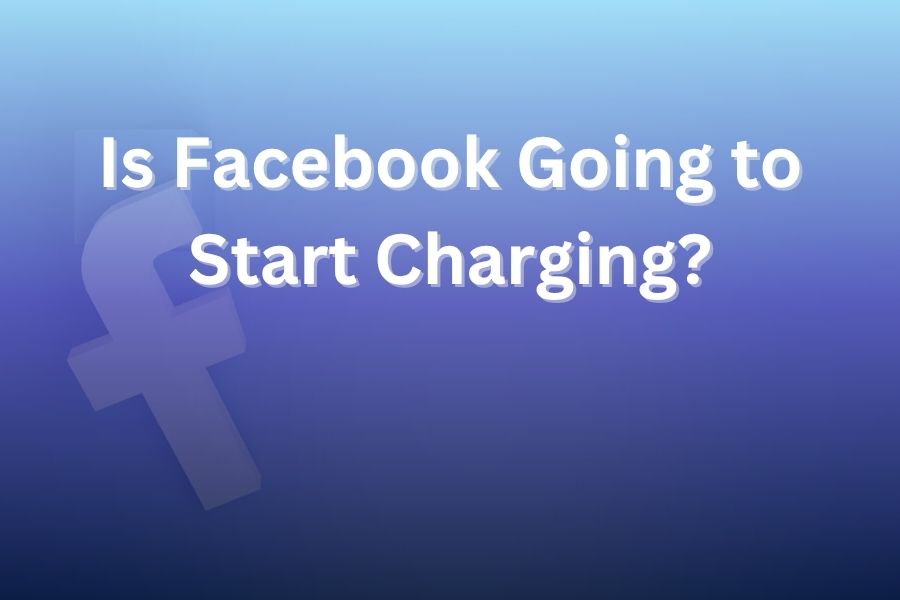You have probably seen posts claiming that Facebook will soon charge users a monthly fee, something like $4.99 or $7.99. The rumors are persistent.
In this article, you will learn precisely what Facebook says, what the facts are, what some recent developments mean, and whether you should worry about being charged.
Why the Rumors Keep Spreading
Rumours that Facebook is going to start charging users often surface as viral posts on the platform. They typically claim something like “Facebook will charge $7.99/month starting Monday” or “Copy this to opt-out of charges.” One version claimed the fee would begin due to a news report on “Channel 13 News.” All of these have turned out to be false.
Facebook’s help page clearly states: “We do not charge you to use Facebook. Instead, we charge advertisers to show ads on Meta Company Products.” That means your access to Facebook remains free.
But why do these hoaxes keep reappearing every few months? Because they tap into user anxiety about changing terms, monetisation models, and distrust of big tech. They also reflect misunderstanding of what subscription options or premium features might exist.
What Facebook Says: Free Access Will Continue
According to the official help content, Facebook does not charge users to use the service. Facebook’s parent company, Meta Platforms, makes money through advertising—by selling ad placements and data-driven targeting, not by charging user access fees.
In fact, the company said on its help page: “We do not charge you to use Facebook. Instead we charge advertisers to show ads on Meta Company Products.” That means the basic service remains free.
So when you see posts telling you to copy-and-paste text to “opt out” of future charges, you can ignore them. They aren’t official, and they don’t have legal effect.
Have Any Paid Options Been Introduced?
Yes. While the core service remains free, Meta has introduced optional paid features. One example is the subscription service called Meta Verified which offers identity verification, proactive monitoring and premium support for $11.99/month on the web and $14.99 on iOS (in the markets where it is available). This is not the same as charging all users for access.
Another example is recent regulatory-driven changes in Europe and the UK. There, users were given a choice between continuing free service with ads and targeting, or paying a fee for an ad-free experience. For example, in the UK a monthly fee of £3.99 was announced for ad-free access to Facebook and Instagram. (That is about $5 in U.S. dollars.) These paid options are region-specific and relate to regulatory compliance, not a global charging policy.
So, Will You Get Charged? What to Expect
For a U.S. audience like you, here’s what to expect:
- You will not be charged simply for using Facebook in the U.S. So you can carry on posting, scrolling, connecting without worrying about a monthly fee for standard access.
- If you choose to purchase optional services (for example, premium verification or ad-free versions in supported markets) you may see charges. But those are your choice, not mandatory.
- Be alert for scams: Posts telling you to copy text into your feed to prevent Facebook from charging you are hoaxes. Don’t follow them.
- Keep your payment information secure. If you see unexpected charges labelled “Facebook” or “Meta,” investigate them—they most likely relate to optional features or third-party services you signed up for.
Why Facebook Has No Reason to Charge Everyone
From a business model perspective, Facebook doesn’t benefit from charging all users. The platform’s value lies in its large user base, which attracts advertisers. If it started charging everyone, many users might leave, reducing the audience and thus the advertising revenue.
Even some posts on Reddit reflect this logic: users argue that “the data we provide is the price we pay,” meaning the platform monetises via ads, not subscriptions. In other words, your engagement and the data it generates are what Facebook sells to advertisers.
Recent Global Developments That Could Affect the Future
While nothing has changed in the U.S. for standard users, there are international shifts that could hint at future possibilities:
- In Europe and the UK Meta launched ad-free subscription options to comply with privacy and antitrust regulation.
- Meta offered to reduce subscription fees for those ad-free services (e.g., from €9.99 to €5.99) in response to regulatory pushback.
- Regulators in the EU challenged Meta’s “pay or consent” model, saying it forced users to choose between targeted ads or paying a fee, which may run counter to digital market rules.
These moves show that while Facebook is not charging all users in the U.S. yet, the company is under pressure globally and exploring alternative revenue models or regulatory-driven changes.
What You Should Do to Stay Secure
Here are actionable steps for you:
- Confirm your account’s payment history: check for any official subscription you may have started.
- Never copy-and-paste fear-based posts telling you to “opt-out” of charges. They are hoaxes.
- Stay updated on help pages from Facebook/Meta to verify any genuine announcements.
- Manage privacy settings so you understand what data Facebook collects and how ads are targeted.
- Consider optional premium services only if they provide real value to you. If you only use the free service, you have nothing to pay.
Conclusion
In summary, you should not worry about Facebook charging you a monthly fee for standard access in the U.S. The service remains free, supported by advertising revenue. While optional paid services and international subscription models exist, they apply only in certain markets or for added features.
Until Meta announces a global charging policy (which seems unlikely given its advertising-based business model), you can continue using Facebook without paying. Stay alert, stay informed, and don’t fall for hoax posts.

